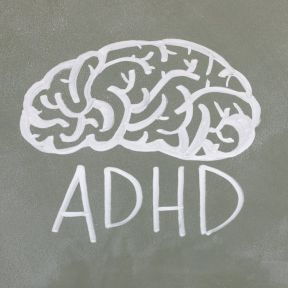
Impulse Control Disorders
Impulse control disorders (ICDs) are a class of psychiatric disorders characterized by difficulties controlling aggressive or antisocial impulses. Because they can involve physical violence, theft, or destruction of property, the disorders often have harmful effects on both the person with the disorder and on others around them.
Impulse control disorders include intermittent explosive disorder (characterized by a failure to resist aggressive or violent impulses); kleptomania (the impulse to steal things not needed for use); and pyromania (an uncontrollable impulse to set fires). In the DSM-5, antisocial personality disorder and oppositional defiant disorder are included in the same category, which is broadly categorized as “disruptive, impulse-control, and conduct disorders.” Pathological gambling was once classified as an impulse control disorder but is now considered an addiction-related disorder in the DSM.
Get help with impulse control disorders today. Find a professional near you.
Contents

Impulse control disorders are thought to develop through a combination of biological and environmental factors. They often co-occur with other psychiatric disorders—most notably depression, anxiety, and substance abuse—but it’s not always clear whether comorbid conditions develop independently or whether mental health challenges result from difficulty managing impulses and the consequences thereof. Regardless, many (but not all) people with impulse control disorders report significant distress or interpersonal conflict as a result of their behavior, which often feels out of their control.
The disorders themselves are rare, each affecting approximately 1 to 3 percent of the population. Combined, however, ICDs affect a significant number of children and adults.
The behaviors and emotions associated with impulse control disorders often follow a similar trajectory. Before the impulse is acted on, many with ICDs report mounting internal tension, which can become seemingly unbearable. The tension is temporarily relieved when the impulse is carried out, but afterward, there may be a rush of guilt.
Like many psychological disorders, it is not necessarily possible to permanently cure impulse control disorders. But though ICDs often feel uncontrollable, treatment is possible. While results vary depending on the disorder’s severity and on patient cooperation, the prognosis is considered to be generally positive. In most cases, children generally see greater improvement than adults, who are more likely to dismiss treatment or be uncooperative.
Cognitive behavioral therapy, or CBT, has been found to be effective for many impulse control disorders. In addition, relaxation techniques and aversion therapy have both been found to be beneficial. In cases of interpersonal conflict resulting from impulsive behavior, family therapy or couples therapy may provide additional support. Because the disorders are often comorbid with other conditions that must be factored into treatment, such as substance abuse or depression, approaches vary. Effective treatment may draw on both psychopharmacological methods, such as antidepressants, and psychotherapy.
Impulse control disorders are often treated with a combination of medication and therapy. Kleptomania, for example, is often treated with SSRIs, while intermittent explosive disorder may respond to antidepressants, anxiolytics, or anticonvulsants.
Although many people with ADHD display impulsive behavior, ADHD is not classified as an impulse control disorder; rather, in the DSM-5, it is a neurodevelopmental disorder. Impulsive behavior is not a universal symptom of ADHD, and when it is present, it is not necessarily aggressive or antisocial. Impulse control disorders, by contrast, are characterized by impulsive behavior that causes harm or violates social norms.
To learn more about causes, symptoms, and treatment of ADHD, see the ADHD Center.
Trichotillomania and other body-focused repetitive behaviors (BFRBs)—in which individuals engage in compulsive hair-pulling, skin-picking, or other self-injurious behaviors—were classified as impulse control disorders in past editions of the DSM. In the DSM-5, however, they are categorized as obsessive-compulsive disorders. Many experts still theorize that BFRBs are related to impulse control disorders in some way, though the exact relationship is unknown.
To learn more about BFRBs, see Body-Focused Repetitive Behaviors.
Addiction is not classified as an impulse control disorder. But impulsiveness is a key risk factor for addiction, and often plays a strong role in someone’s early motivation to seek drugs. What’s more, impulse control disorders are risk factors for addiction. Thus, understanding the connection between impulse control challenges and substance use may help individuals better manage both conditions.
To learn more about overcoming addiction, see the Addiction Center.

Intermittent explosive disorder usually begins in late childhood or adolescence, and can have a serious negative impact on sufferers' lives. Aggressive "episodes" can result in property damage or physical assault, possibly leading to trouble with the law or other long-term consequences—and in many cases, angry explosions damage relationships with others, sometimes beyond repair. For this reason, many with intermittent explosive disorder feel genuine regret after their outbursts, even if they feel relief in the moment. Luckily, treatment, while challenging, can be highly effective, particularly if it's started as early as possible.
To learn more about causes, symptoms, and treatment of intermittent explosive disorder, see our Diagnosis Dictionary.
Since intermittent explosive disorder appears to run in families, it’s likely that there is a genetic component. However, since many with intermittent explosive disorder grew up in homes where explosive behavior or violence was common, it’s highly possible that their explosive behavior is learned to some degree.
Intermittent explosive disorder is associated with differences in brain structure and function. Some research, for example, suggests that IED is linked to disruptions in serotonin pathways in the brain and limbic system. Additional research has found that the disorder is associated with lower white matter integrity and lower grey matter volume in the connections between the frontal lobe and other brain regions, which may contribute to impaired social cognition and greater difficulty regulating emotions.
Some evidence suggests that anger outbursts can increase the risk of health problems. One study, for example, found that people who had frequent “rage attacks” were more susceptible to heart attacks and stroke—especially in the hours immediately following an outburst—likely due to spikes in blood pressure and vascular resistance caused by stress. Though one instance of anger will not confer a large amount of risk, the researchers warn, frequent bouts of anger can lead to accumulated risk over time.
The primary symptom of intermittent explosive disorder is a frequent failure to control aggressive impulses. This may manifest as verbal aggression (temper tantrums, loud tirades, etc.) or physical aggression (toward other people, property, animals, etc.). Such outbursts are impulsive (not premeditated), are typically brief, and are often disproportionate to the offense that triggered them.
To qualify for an IED diagnosis, someone must demonstrate impulsive verbal or physical aggression approximately twice a week for at least 3 months. Someone who “explodes” less frequently can also qualify if their outbursts are particularly destructive; three outbursts in a 12 month period that result in physical injury or property damage may also trigger an IED diagnosis.
Intermittent explosive disorder is often treated with a combination of therapy and medication. Cognitive behavioral therapy can help patients recognize their aggressive impulses and develop coping mechanisms for responding to them; learning relaxation techniques, for example, may help keep rage at bay until the impulse passes. Anger management programs may also help, as can group therapy with other individuals who struggle to rein in aggression. If comorbid conditions such as anxiety or depression are present, they should be factored into the treatment plan, especially if medication is used.

Someone with kleptomania frequently feels compelled to steal items—often small items, or those of little value—and finds it immensely difficult to resist these urges. Unlike many other people who steal—who may do so for monetary gain, for revenge, or because they are in grave need of certain things—those with kleptomania do so for no clear purpose: they steal purely for the sake of stealing. Taking the item may temporarily provide pleasure or a sense of relief, but many individuals report feelings of guilt or shame afterward. Though some people with kleptomania are able to steal without being caught, many find themselves in trouble with the law—some estimates suggest that up to 20 percent of people arrested for shoplifting suffer from kleptomania.
For more on causes, symptoms, and treatment of kleptomania, see our Diagnosis Dictionary.
Similar to intermittent explosive disorder, kleptomania is thought to be caused, at least in part, by disruptions in neurotransmitter pathways that deal with serotonin and dopamine, which play a role in aggression and how the brain responds to reward. There may also be imbalances in the brain’s opioid system, which influences one’s ability (or inability) to resist urges.
Kleptomania can develop as early as childhood, though in most cases it begins to manifest in adolescence or young adulthood. In very rare cases, it develops in later adulthood.
Approximately two-thirds of known kleptomania cases occur in women. But because the disorder is rare and often goes undiagnosed, the exact relationship between kleptomania and gender is not well-understood. Some evidence suggests, however, that women tend to develop the disorder later than men and have a greater tendency to hoard the items they steal.
According to the DSM-5, the symptoms of kleptomania include:
• A frequent, persistent urge to steal unneeded items, with no motive of financial gain
• A feeling of tension leading up to the theft, followed by intense feelings of pleasure or relief at the time of the theft
In order to qualify for a diagnosis of kleptomania, the thefts must not be related to antisocial tendencies, mania, or hallucinations, or carried out as a means of revenge. In most cases, the individual will feel guilt and remorse, and often intense depression, after the theft.
Cognitive behavioral therapy is the most common treatment for kleptomania, though some clinicians adopt a psychodynamic approach in an attempt to uncover the underlying psychological problems that may drive an individual’s urge to steal. SSRIs are sometimes used in conjunction with therapy.
Aversion therapy is a behavioral technique sometimes employed to treat kleptomania, in which the individual will purposely associate something unpleasant with their urge to steal. For example, they may, with practice, train themselves to think of something disgusting every time the urge to steal arises; similarly, some people hold their breath to induce discomfort whenever they think about stealing.

Many people experience some interest in or even fascination with fire. But those with pyromania take this fascination to an extreme—and by purposely setting fires to fuel it, they often put themselves and others at great risk. Because pyromania is exceedingly rare, it's a difficult disorder to understand and treat. However, some approaches have shown promise, especially if they are started immediately upon diagnosis and, when possible, incorporate other members of the family.
To learn more about causes, symptoms, and treatment of pyromania, see our Diagnosis Dictionary.
The exact cause of pyromania is unknown, though the small amount of research that has been done on the condition suggests there may be a genetic component. Researchers speculate it may share roots with other behavioral addictions, such as gambling, as well as other compulsive behaviors.
Individuals with pyromania often feel deeply fascinated by fire, and may feel a sense of euphoria upon setting one and watching it burn. They may feel an internal tension before a fire is set, which gives way to immense relief once it is.
Arson is the setting of fires for monetary gain, the desire to cover up a crime, or some other clear (if often immoral or criminal) cause. Pyromania, by contrast, is internally motivated—the fires are set for emotional gratification, not for money or personal gain.
The symptoms of pyromania include:
• An interest in and attraction to fire
• Deliberately setting multiple fires
• A feeling of excitement or tension that occurs before the fire is set, followed by relief or pleasure
As with kleptomania, a diagnosis of pyromania can only be granted if the actions are not taken out of anger, as a means of revenge, or to cover up a crime. The fire-setting must not be better explained by delusions, a manic episode, or antisocial tendencies.
Individuals with pyromania may express unusual interest in fires or fire-fighting, often showing up at places where fires are burning or setting off false fire alarms. Someone with pyromania may also have an unnecessary amount of fire-setting paraphernalia, such as matches or lighters. In places these individuals live or frequent, there may be burn marks or holes in fabric, rugs, or furniture, or burnt items in garbage cans or sinks.
Treatment for pyromania should start immediately after diagnosis, as the disorder becomes more difficult to treat with age. Treatment usually incorporates cognitive behavioral approaches, which help an individual recognize the “tension” that builds before a fire-setting event and identify new strategies for releasing those feelings. If treatment starts in childhood, parent training or family counseling can help family members better understand the disorder and learn strategies for keeping their home safe. Fire safety lessons may also help them recognize the potential harm their actions may cause others.














